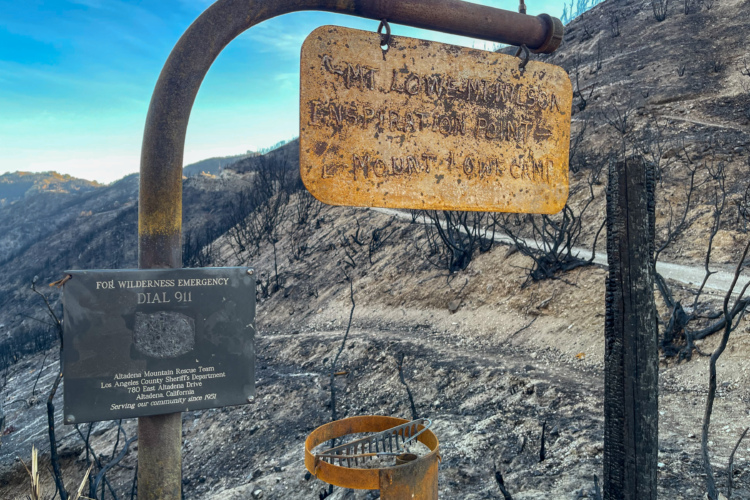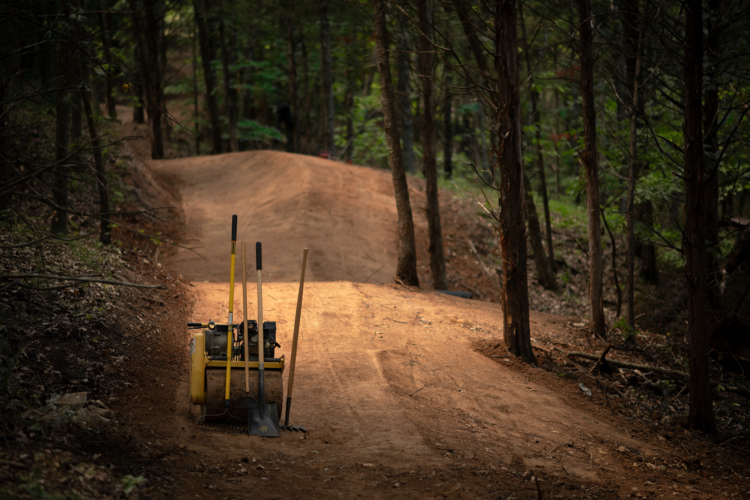
The Trump White House issued an executive order pausing vast swaths of federal assistance programs on January 27, 2025. The memorandum ordered federal agencies “to the extent permissible under applicable law, [to] temporarily pause all activities related to obligation or disbursement of all Federal financial assistance, and other relevant agency activities that may be implicated by the executive orders, including, but not limited to, financial assistance for foreign aid, nongovernmental organizations, DEI, woke gender ideology, and the green new deal.”
A second memorandum was published on January 29 rescinding the first, but the Trump administration has continued to freeze some federal funds in opposition to a temporary restraining order. The federal funds freeze, along with other executive orders (a record 37 in the first week), has thrown mountain bike trail projects across the nation into disarray and uncertainty.
This prompted Todd Keller and Aaron Clark, who work in government affairs for IMBA, to release a memorandum providing guidance about the executive orders in an attempt to cut through the “significant amount of information and misinformation being disseminated.”
The IMBA memo notes, “There will certainly be disruptions on payments, applications, disbursements of federal funds and agencies will find themselves in limbo as the court cases move forward.” To understand where those disruptions are coming from and how they may be affecting organizations on the ground, we spoke to several mountain bike advocates to get their take.

The key issue is federal funding
The federal funding pause has had far-reaching implications and is specifically affecting funding allocated to mountain bike trail projects by the Great American Outdoors Act (GAOA). GAOA was originally passed during the previous Trump administration, and it “has dedicated billions in funding for the maintenance backlog on public lands,” according to the Outdoor Alliance. “In total, the bill has provided as much as $2.8 billion a year for public lands, outdoor recreation, trail maintenance and restoration, and new green spaces.”
Some of the GAOA projects are major infrastructure improvements — for example, in national parks — but many are relatively “small scale” mountain bike trail projects. “A lot of the reason why these federal grant funds get assigned to these smaller organizations is because of the lack of capacity at agencies already,” said Nicole Brown, Communications & Public Engagement Manager for the Outdoor Alliance. “The Forest Service (USFS), Bureau of Land Management (BLM), and Parks (NPS) don’t have the staff, support, or funding needed to take on and complete these projects, as people are getting outdoors more.”
All funds being allocated by the GAOA have been thrown into doubt, regardless of whether they’ve already been approved. “I know of a handful of projects that remain in the balance and [are] uncertain of if they’re going to get funded, some of which have been committed already from the agencies and ones that people were hoping to get before the year runs out,” said Brown.
Currently, there are 83 projects approved for GAOA funding in 2025, and at this point in time, it’s unclear which — if any of them — will be completed.
Future grants and funding are even more uncertain. Rob Pettersen, Founding Board Director & Secretary for the Lowelifes Respectable Citizens’ Club and Board Vice President for the California Mountain Biking Coalition, shared a story of a mountain bike trail org in central California that “would be probably number one in the running to get a trail building grant on BLM land.” The grant “was just deleted from the website with no explanation.”
Brown said that the Outdoor Alliance is still hoping to get the Great American Outdoors Act, which is set to expire in September 2025, reauthorized this year. Brown pointed to the bipartisan support that GAOA and the EXPLORE Act have received as signs of hope for getting GAOA reauthorized.
The lack of management resources within the Forest Service further complicates matters
In an email blast from the U.S. Office of Personnel Management (OPM), “Trump [invited] nearly all federal workers to quit now, get paid through September,” according to NPR.org.
This invitation to resign has led to “a lot of low morale” within the US Forest Service, according to Pettersen. “This is an agency that already, in my opinion, doesn’t have enough funds to do their business, especially on the recreation side… And now on top of that, we have agency staff who just feel like they’re unwanted, right? And so, regardless of specific projects or programs that have been paused or canceled in the last couple of weeks, we’re hearing that folks are just sitting at their desks being like, ‘Why am I here? Does the ultimate boss actually want us gone?'”
Pettersen thinks that many managers are going to take the buyout, and he fears that institutional trail building knowledge will continue to decline within the Forest Service. He shared that there were Forest Service units in California with a dozen trail staff 20 years ago that are down to just one staff member… if they’re lucky.
“In my opinion, it’s a bummer, because many of our forests, at least in California, have already lost the institutional knowledge of how to build trail or even maintain trail, and these sorts of negative vibes, for lack of a better term, coming out of the White House, encourage that institutional knowledge to continue to be lost. Young folks who are maybe in their 20s, just got hired in the Forest Service, they’re like, ‘Why do I want to work here? Maybe I should start job hunting.'”
What projects have been affected already?
We’ve heard rumors from multiple sources of projects being halted due to the funding freeze. These were projects that were approved for construction and funding from the GAOA. However, nobody is willing to speak on the record about specific projects for fear of retribution. Ultimately, both the local mountain bike clubs and employees at public agencies are in a “wait and see” period, and neither want to jeopardize themselves by speaking publicly about the issues.
The fear and trepidation are palpable and unprecedented. While this makes it more difficult to do our jobs, we’ll be sure to continue covering this story as it develops — because it’s far from over.
“Keep in mind that this is likely the first few moves of a very long chess match, and we’ll have to get more adept at working through the chaos and confusion this Administration is sure to sow. We interpret this as an exercise in testing the fortitude of Congress and the judicial system, and in exploring the expansion of Presidential powers,” the IMBA memo concludes.





















10 Comments
Feb 11, 2025
Feb 13, 2025
Feb 13, 2025
Feb 19, 2025
Feb 11, 2025
Feb 13, 2025
Feb 11, 2025
Feb 11, 2025
I mean, who doesn’t like Digging, Excavating, and Innovating?
Feb 11, 2025
Feb 11, 2025